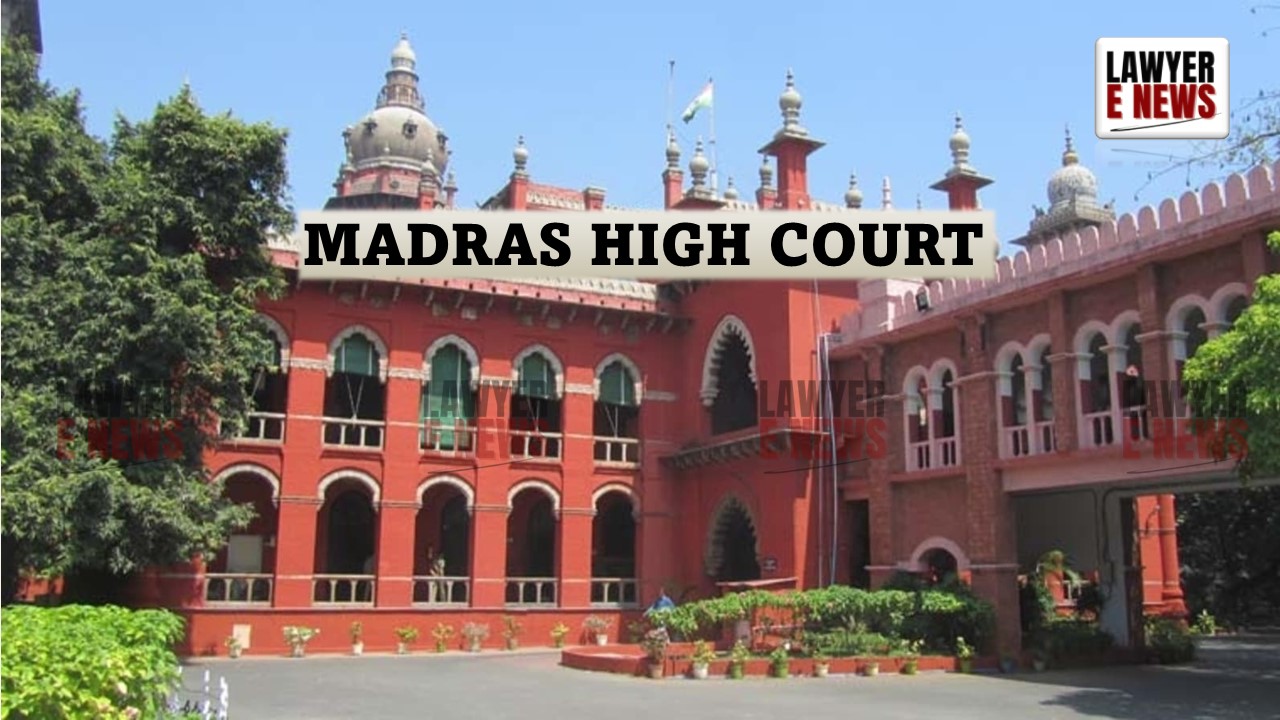-
by Admin
15 February 2026 2:36 AM



On September 10, 2024, the Madras High Court delivered a significant ruling in the case of D. Manoharan vs State by Deputy Superintendent of Police, Vigilance and Anti-Corruption, Salem, setting aside a corruption conviction under the Prevention of Corruption Act. The court found substantial inconsistencies in the prosecution's case, determining that the defense had raised a more believable explanation for the events. The ruling overturned a lower court’s judgment, acquitting the appellant of all charges.
The case originated in 2003, when D. Manoharan, a Junior Assistant at the Vazhapadi Taluk Office, was accused of demanding a Rs. 250 bribe for processing a death certificate. P.W.2, the complainant, had applied for the death certificate of his grandfather, but faced multiple delays, allegedly culminating in a demand for a bribe by the appellant. After the request for payment, P.W.2 lodged a complaint with the Vigilance and Anti-Corruption Department.
A trap was laid on June 30, 2003, during which the appellant was found with three marked Rs.50/- notes. This led to his arrest, prosecution, and eventual conviction by the Special Court in January 2017 under Sections 7 and 13(1)(d) of the Prevention of Corruption Act. The appellant appealed against the judgment.
The central legal issue was whether the prosecution had convincingly demonstrated that the appellant had solicited and accepted a bribe. A key aspect was the presumption under Section 20 of the Prevention of Corruption Act, which shifts the burden of proof to the accused once caught with marked currency.
The defense challenged the entire operation, arguing that the prosecution’s version was implausible, and several aspects of the case appeared staged.
The appellant was assigned to submit official documents at the District Treasury in Salem on June 30, 2003, the same day as the alleged bribery. The office was 45 km away from Vazhapadi, where the trap was set. The defense, supported by D.W.2, a staff member at the Salem Collectorate, argued that the appellant had been called back to the Taluk office unexpectedly and could not have been present at the time the bribe was allegedly solicited.
This defense raised serious doubts about the prosecution's claim that the appellant had prearranged the bribe collection that afternoon. Justice N. Seshasayee emphasized that it was improbable for the appellant to return to the office, traveling 30 km after official duties, merely to collect a Rs. 250 bribe, especially when the task could have been delayed to the next day.
The court found the prosecution's explanation for returning Rs. 100 from the Rs. 250 bribe implausible. According to P.W.2, the appellant gave back Rs. 100 as a kind gesture, as the complainant claimed he needed money to travel home. The court labeled this narrative as "unbelievable" and more consistent with the appellant’s claim that the payment was a loan repayment of Rs. 150, with Rs. 100 returned to correct the overpayment.
This version was further supported by P.W.5, a prosecution witness, who testified that the appellant had mentioned this loan transaction immediately after the trap. The court emphasized that the prosecution had failed to investigate this angle properly, raising further doubts about the credibility of their case.
The court also pointed out deficiencies in the trap operation. P.W.2, under instruction from the investigating officer, handed over marked currency notes to the appellant, but inconsistencies in the sequence of events cast doubt on the integrity of the operation. The appellant was found with only three of the five marked notes, and the court questioned why he would return part of the bribe if he had indeed demanded it persistently.
While the prosecution relied heavily on the presumption of guilt under Section 20 of the Prevention of Corruption Act, the court clarified that this presumption could be rebutted by creating a reasonable doubt. The defense had successfully created such doubt by demonstrating a more probable explanation for the events—that the money was a loan repayment rather than a bribe. The prosecution’s failure to present a convincing rebuttal to this defense weakened their case significantly.
Justice N. Seshasayee concluded that the prosecution’s case was marred by inconsistencies and lacked the necessary credibility to sustain a conviction. The defense, on the other hand, had successfully provided a more plausible account of the events, supported by credible witnesses. As a result, the court allowed the appeal, acquitting D. Manoharan and setting aside the earlier conviction.
Date of Decision: September 10, 2024
D. Manoharan vs State by Deputy Superintendent of Police, Vigilance and Anti-Corruption, Salem
